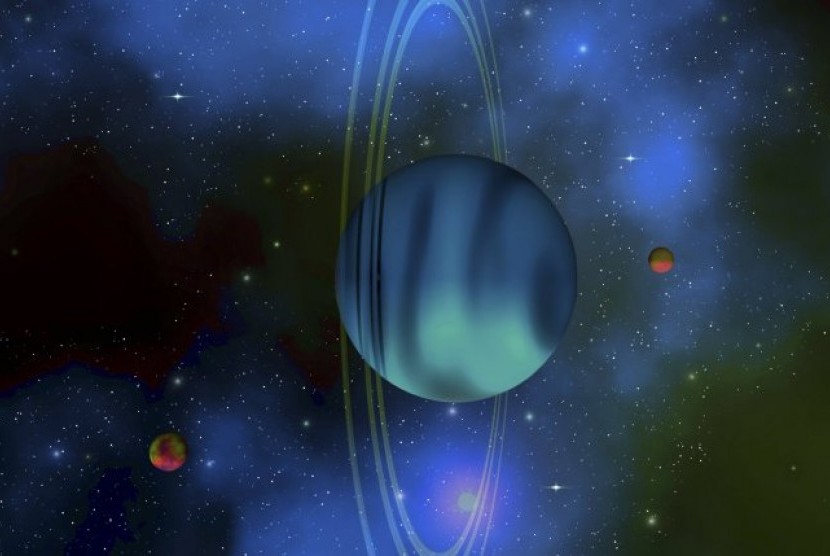The clouds in Uranus’ atmosphere are made up of hydrogen sulfide.
REPUBLIKA.CO.ID, JAKARTA – Planet Uranus turned out to have a pungent odor. A study shows that there are a number of objects on Uranus that have a bad smell, one of which is the smell of rotten eggs.
According to the research conducted, the clouds in the planet’s atmosphere are composed mostly of hydrogen sulfide, the molecule that makes rotten eggs smell so bad.
“If any humans come through the Uranus cloud, they will be met with conditions that are very unpleasant, even terrible,” said lead study author, Patrick Irwin of the University of Oxford, UK. Space, Thursday (15/4).
The study of Uranus is not a new study. The study of the scent of Uranus was published in the journal Nature Astronomy in 2018.
Researchers have long wondered about the composition of the clouds on Uranus. In particular, the question is whether the clouds in the planet’s sky are dominated by ammonia like Jupiter and Saturn, or by hydrogen sulfide ice.
The answer is still difficult to understand, due to the limitations of the required detailed observations, where the location of Uranus is very far away. In contrast to Jupiter and Saturn which are closer to Earth.
So far, Uranus has only been visited once by the American Space Agency’s (NASA) Voyager 2 spacecraft in January 1986. Irwin and his fellow researchers studied the planet’s air using the Near-Infrared Integral Field Spectrometer (NIFS), an instrument on the planet. the 26-foot (8 meter) Gemini North telescope in Hawaii.
NIFS studied sunlight reflected from the atmosphere just above the cloud tops of Uranus and looked for signs of hydrogen sulfide. From there, you can see that only a small amount remains above the cloud as saturated vapor.
“This is why it is so challenging to catch the mark of ammonia and hydrogen sulfide above the Uranus cloud heap. Gemini’s superior ability ultimately gave us that fortune, ”explained study co-author Leigh Fletcher of the University of Leicester.
Meanwhile, the clouds on Neptune most likely bear similarities to Uranus. The difference between the two compared to Jupiter and Saturn is related to the environment in which each planet is formed.
According to Fletcher, Uranus and Neptune are farther apart than the sun. During the formation of the solar system, there was a balance between nitrogen and sulfur.
“Hence Uranus’ newly detected ammonia and hydrogen sulfide are determined by the temperature and location where a planet is formed,” Fletcher added.
– .


